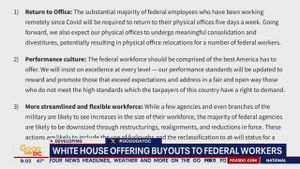AstraZeneca has officially canceled its planned £450 million investment for a vaccine manufacturing plant in Speke, Merseyside, due to the Labour government’s failure to match the financial backing previously offered by the Conservative party. This development marks a significant shift following former Chancellor Jeremy Hunt's commitment made during last year's March budget, wherein AstraZeneca was set to expand its existing facility, bolstering the UK’s life sciences sector and enhancing public health preparedness against future pandemics.
On Friday, AstraZeneca released statements confirming their decision, with a spokesperson stating, "Following discussions with the current Government, we are no longer pursuing our planned investment in Speke. Several factors have influenced this decision including the timing and reduction of the final offer compared to the previous government’s proposal." The investment recall has raised alarms, particularly among industry stakeholders who view it as indicative of larger issues within the UK’s current economic environment.
During the tenure of the Conservative government, which touted the planned investment as pivotal for boosting Britain’s life sciences sector, AstraZeneca’s expansion was seen as not just beneficial to the company but as a monumental step for public health. Having already played a fundamental role during the COVID-19 pandemic, the pharmaceutical giant’s commitment was believed to cement the UK as a leader in vaccine development.
Subsequent to AstraZeneca’s announcement, the government clarified the circumstances. A spokesperson indicated, "A change in the make-up of the investment proposed by AstraZeneca led to a reduced Government grant offer being put forward. All Government grant funding has to demonstrate value for the taxpayer, and unfortunately, it has not been possible to achieve a solution." Nonetheless, the government insists it is still committed to engaging with AstraZeneca as part of its overarching strategy to develop the life sciences sector, which is currently valued at £108 billion and supports over 300,000 skilled jobs across the nation.
The opposition has seized upon this setback, framing it as indicative of mismanagement by Labour. Andrew Griffith, shadow business secretary, articulated the frustration felt within the business community, proclaiming, "There’s no vaccine for incompetence. ... This is yet another sign ... have made the UK an unattractive place to invest." His remarks aim to highlight the juxtaposition of Labour’s proposed economic policies against actual investment outcomes.
Conversely, Labour officials have defended their stance, attributing the failure to retain AstraZeneca’s investment to the conditions set under the previous Conservative administration. A Labour source commented, "After dithering for years, (former Chancellor) Jeremy Hunt was so desperate for a budget announcement he offered a deal with no regard to value for money. Of course we want to bring investment to the UK, but we’re prioritising every pound of taxpayers’ money, unlike the Tories, who wasted billions and left Labour to clean up their mess." This sentiment reflects the party's focus on responsible spending vis-à-vis attracting investment.
The industry’s reactions have not been muted either. Sharon Todd from the Society of Chemical Industry expressed her concerns, stating, "This decision is a real concern for industry, sending out the wrong message at a time government is shaping its new industrial strategy, Invest 2035." Her remarks signal worries about how investment decisions may influence the future framework of government strategies which are intended to fortify the country’s industrial capacities.
Despite the cancellation of the new investment, it is worth noting the existing AstraZeneca facility will continue operations, and as of now, there are no impending job losses reported. This stability, albeit under challenging circumstances, offers some solace as the UK grapples with the broader repercussions of this event. Nonetheless, the lost investment certainly sends ripples through the economy, and raises questions about the future attractiveness of the UK as a destination for high-stakes pharmaceutical investments.
Such upheaval adds fuel to the fire of the already contentious political climate as parties grapple with accusations of incompetence and lost opportunities. The AstraZeneca scenario encapsulates the friction between economic aspirations and political realities, underscoring the need for coherent strategies to attract investment amid changing governmental priorities. Analysts and advocates alike remain vigilant, anticipating how both AstraZeneca and the government might navigate this relationship moving forward.



